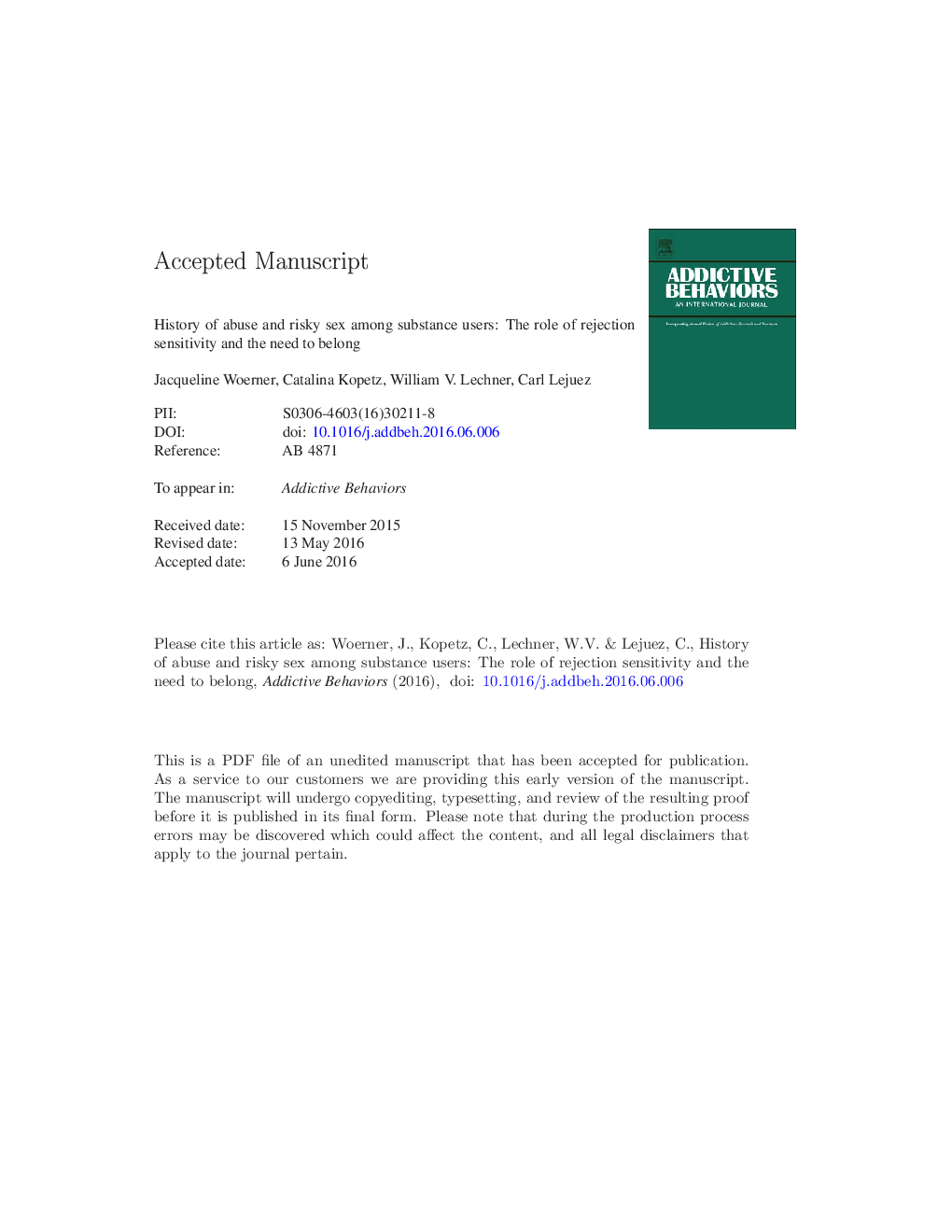| Article ID | Journal | Published Year | Pages | File Type |
|---|---|---|---|---|
| 7259927 | Addictive Behaviors | 2016 | 26 Pages |
Abstract
This study investigates abuse and rejection sensitivity as important correlates of risky sexual behavior in the context of substance use. Victims of abuse may experience heightened sensitivity to acute social rejection and consequently engage in risky sexual behavior in an attempt to restore belonging. Data were collected from 258 patients at a substance use treatment facility in Washington, D.C. Participants' history of abuse and risky sexual behavior were assessed via self-report. To test the mediating role of rejection sensitivity, participants completed a social rejection task (Cyberball) and responded to a questionnaire assessing their reaction to the rejection experience. General risk-taking propensity was assessed using a computerized lab measure. Abuse was associated with increased rejection sensitivity (B = 0.124, SE = 0.040, p = 0.002), which was in turn associated with increased risky sex (B = 0.06, SE = 0.028, p = 0.03) (indirect effect = 0.0075, SE = 0.0043; 95% CI [0.0006, 0.0178]), but not with other indices of risk-taking. These findings suggest that rejection sensitivity may be an important mechanism underlying the relationship between abuse and risky sexual behavior among substance users. These effects do not extend to other risk behaviors, supporting the notion that risky sex associated with abuse represents a means to interpersonal connection rather than a general tendency toward self-defeating behavior.
Related Topics
Life Sciences
Neuroscience
Behavioral Neuroscience
Authors
Jacqueline Woerner, Catalina Kopetz, William V. Lechner, Carl Lejuez,
